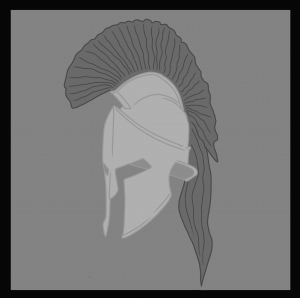The fifth century has often been seen as the Golden Age for the Greek city-states. Athens was at the height of its power and influence after the Persian Wars, Pericles’ building program gave us the buildings on the Acropolis, Sparta managed to defeat Athens in the Peloponnesian Wars and became thé Greek city-state by the end of the century.
In the fifth century BC the Greeks were more divided than they had ever been before. The unity they had once shown against the Persians during the Persian Wars was completely gone by the 430s. Athens as the bigges victor of the war had misused its position as the leader of the Delian League. Growing tensions with Sparta as well as discontent among the members of the Delian League Sparked a conflict in 431 BC after Corinth, a Spartan ally, had engaged the Athenian army. Spartan and its allies fought Athens and its allies until 403 BC, the fighting was only broken once by a six year truce, often known as the Peace of Nicias. In the end, Athens was weakened by the continued warfare and was defeated by the Spartan general Lysander.
The Peloponnesian Wars is an important part of Greek history. But it is a complex and sometimes confusing bit of Greek history to teach, especially to younger students. In order to make this war a bit more interactive, I have developed a little game you can play in class or with a group of friends. Based on the classic game maffia, the game is set during the Peace of Nicias and is called Kataskopoi.
Kataskopoi
Setting:
421 BC, Sparta. The Peloponnesian War. The fighting between Athens and Sparta has stopped. Both sides have agreed to put aside their hostilities and life in the Greek poleis has more or less returned to normal. However, mistrust and paranoia remains in both camps. Both Athens and Sparta often send out spies to infiltrate enemy troops and cities to gain intel. Most Spartan citizens know this and they are constantly on the lookout for strangers or people acting suspicious, after all the enemy can be anywhere.
Goal:
The Spartan citizens have to discover and kill the Athenian kataskopoi who are hiding among them. If they manage to identify all of them, the Spartans win the game. However, in each game three or four kataskopoi are hiding among the Spartans and try to kill the innocent citizens at night. If they succeed in doing so and remain anonymous, they win the game.
characters:
Sparta is a lively city where a a lot of different characters can be found. Some of them are gods in disguise determined to protect their favourite city against the Athenian enemy, while others are just there on a well deserved break.

Spartan citizen: A citizen wants what is best for the city: discover the kataskopoi and save the city. They can vote and suspect others during the day but remain fast asleep at night.

Athenian kataskopoi: These Athenian spies look just like any other Spartan citizens during the day. They participate in the search for the Athenian spies, but at night they show their true colours. The goal of a kataskopos is to kill as many Spartans as they can while remaining undiscovered.

Cyclope: This guy is a bit of a mystery. He has only been in the city for a few days but refuses to take of his hood and only goes out at night. He has mentioned – from under his hood of course – to a few of the merchants that he saw some very fishy things at night.
 Pythia: Apollo has sent his favourite human vessel to Sparta to warn the citizens of an impending danger. The Athenians are among them and the Pythia will try to help any way she can. Of course, the only way she can help is by physically touching a different citizen each night to reveal the person’s true identity.
Pythia: Apollo has sent his favourite human vessel to Sparta to warn the citizens of an impending danger. The Athenians are among them and the Pythia will try to help any way she can. Of course, the only way she can help is by physically touching a different citizen each night to reveal the person’s true identity.
 Medea: The famous Greek sorceress finds herself in Sparta. She has fled from Athens to the city to escape from Iason’s henchmen and has charmed herself to look like an innocent Spartan woman. To help the citizens of her new hometown against the kataskopoi, Medea has brewed two potions: one allows her to bring a victim back from the death, one to kill an extra person.
Medea: The famous Greek sorceress finds herself in Sparta. She has fled from Athens to the city to escape from Iason’s henchmen and has charmed herself to look like an innocent Spartan woman. To help the citizens of her new hometown against the kataskopoi, Medea has brewed two potions: one allows her to bring a victim back from the death, one to kill an extra person.
 Artemis: The goddess of the hunt was hunting in the hills around Sparta when her favourite deer was stolen by a Spartan hunter. Eager to get her pet back, Artemis disguised herself and travelled into the city. For the last few days, she has been looking for her deer. If Artemis is suspected of being a kataskopous and is killed, she reveals her true identity and kills a Spartan citizen in retaliation.
Artemis: The goddess of the hunt was hunting in the hills around Sparta when her favourite deer was stolen by a Spartan hunter. Eager to get her pet back, Artemis disguised herself and travelled into the city. For the last few days, she has been looking for her deer. If Artemis is suspected of being a kataskopous and is killed, she reveals her true identity and kills a Spartan citizen in retaliation.

Eros/Cupid: The god of love is bored. He has decided to fly down to Sparta and wreck a little havoc in the city. At the start of the game, Cupid choses two people who fall in love and have to defend each other against any type of suspicion of other players, because if one of the lovers gets killed, the other dies with them. If Cupid has chosen two people, he remains in the city as a normal citizen.
 Leonidas: This is one of the kings of Sparta. As a every good king should, he is extremely involved in the affairs of his city. He is aware that there are a certain number of Athenian spies and actively leads the discussions and suspicions that live in his city. In case of a tie, Leonidas’ vote counts double.
Leonidas: This is one of the kings of Sparta. As a every good king should, he is extremely involved in the affairs of his city. He is aware that there are a certain number of Athenian spies and actively leads the discussions and suspicions that live in his city. In case of a tie, Leonidas’ vote counts double.
Gameplay:
Once the setting, goal and character of the game is explained, gameplay goes as follows. At the start of the game, it is night in the city. Each night the narrator calls on the different characters wake up to SILENTLY complete an action. They are:
- Cupid: Wakes up only during the first night and choses a couple. Then goes back to sleep.
- The two lovers are tapped on the head/shoulder and look at each other, they then go back to sleep.
- The kataskopoi wake up. They decide among themselves who they want to kill, then go back to sleep.
- While the kataskopoi are debating, the cyclope is allowed to sneakily peek and try to see who the spies are.
- Medusa wakes up. She is give three choices: do nothing, save the person killed by the kataskopoi, kill someone extra. She decides what to do and then goes back to sleep. Has she completed all of her actions, she stays asleep.
- The pythia wakes up. She choses a person and gets to see this person’s true identity. After this, she goes back to sleep.
If all of these actions are complete, the whole city wakes up. The narrator informs the players about the events that have unfolded during the night. After this, it is up to players to voice their suspicions and debate among themselves until they are ready to take a vote. The person with the most votes, is killed by the Spartans. This process continues until either all of the citizens/characters are killed by the kataskopoi or until all of the enemies have been discovered.
Attention:
- If the person killed, is Artemis: she can chose another person to take to the grave with her.
- If one of the lovers is killed, the other dies as well. If both of them remain in the end, they win the game.
